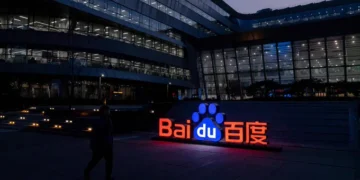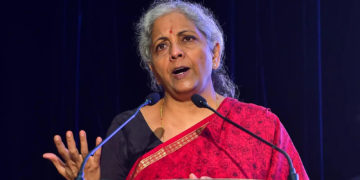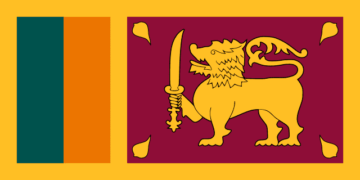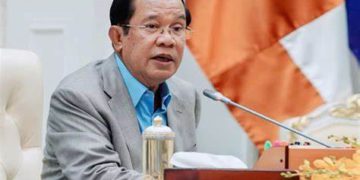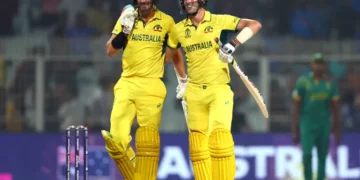HANOI (VIETNAM) – Nguyen Phu Trong, Vietnam’s ruling Communist Party chief, has been nominated for a rare third term, a Party official said, according to several state media articles that were published on Wednesday then subsequently amended, removing the comments.
On Monday, more than 1,600 delegates began nine days of mostly closed-doors meetings at the Party’s five-yearly Congress, during which a new leadership team will be picked to bolster Vietnam’s ongoing economic success – and the legitimacy of the Party’s rule.
Trong, 76, who is also Vietnam’s president and architect of its anti-corruption campaign, had been widely tipped to continue as party chief despite health issues and old age – which should technically disqualify him for the position, although “special case” exceptions are granted.
The articles all quoted delegate Hau A Lenh, a member of the party’s Central Committee, and were published and later amended to remove references to Trong’s nomination.
The Communist Party retains tight control over media in Vietnam and candidates for leadership posts were last month officially declared top secret.
Lenh was quoted by the state-run Tien Phong newspaper as saying there were age limits of 60 and 65 for re-elected members of the Central Committee and Politburo respectively.
“The General Secretary and President is one of the over-age nominees and a special case,” Lenh said, in comments later removed by Tien Phong and other state media outlets.
It was not immediately clear whether there were other nominations for the General Secretary post and the Party has made no official announcement.
Reuters could not immediately reach Lenh. Two party officials declined to comment when asked about Trong’s reported nomination.
Vietnam has no paramount ruler and is officially led by four ‘pillars’: the chief of its Communist Party, a president, a prime minister and the National Assembly chair.
While ascent to the highest levels of Vietnamese politics is governed by Party regulations, in reality the highly secretive process revolves around building consensus and vying for control of the powerful, decision-making Politburo.
That means exceptions can be granted – especially if consensus on the top candidates cannot be reached.
Since coming to power in 2011, Trong has become one of Vietnam’s most powerful figures after emerging on top in a power struggle against a former prime minister at the last congress in 2016.
His crackdown on corruption has seen dozens of high level officials – including one politburo member – sentenced to lengthy jail terms.
In his original comments, party delegate Lenh said discussions surrounding top party positions would begin on Thursday and last for three days, with a vote and announcement on the General Secretary on Sunday.
The rest of the politburo and other top three leadership posts would be voted on by delegates on Monday, he said in remarks later removed.












